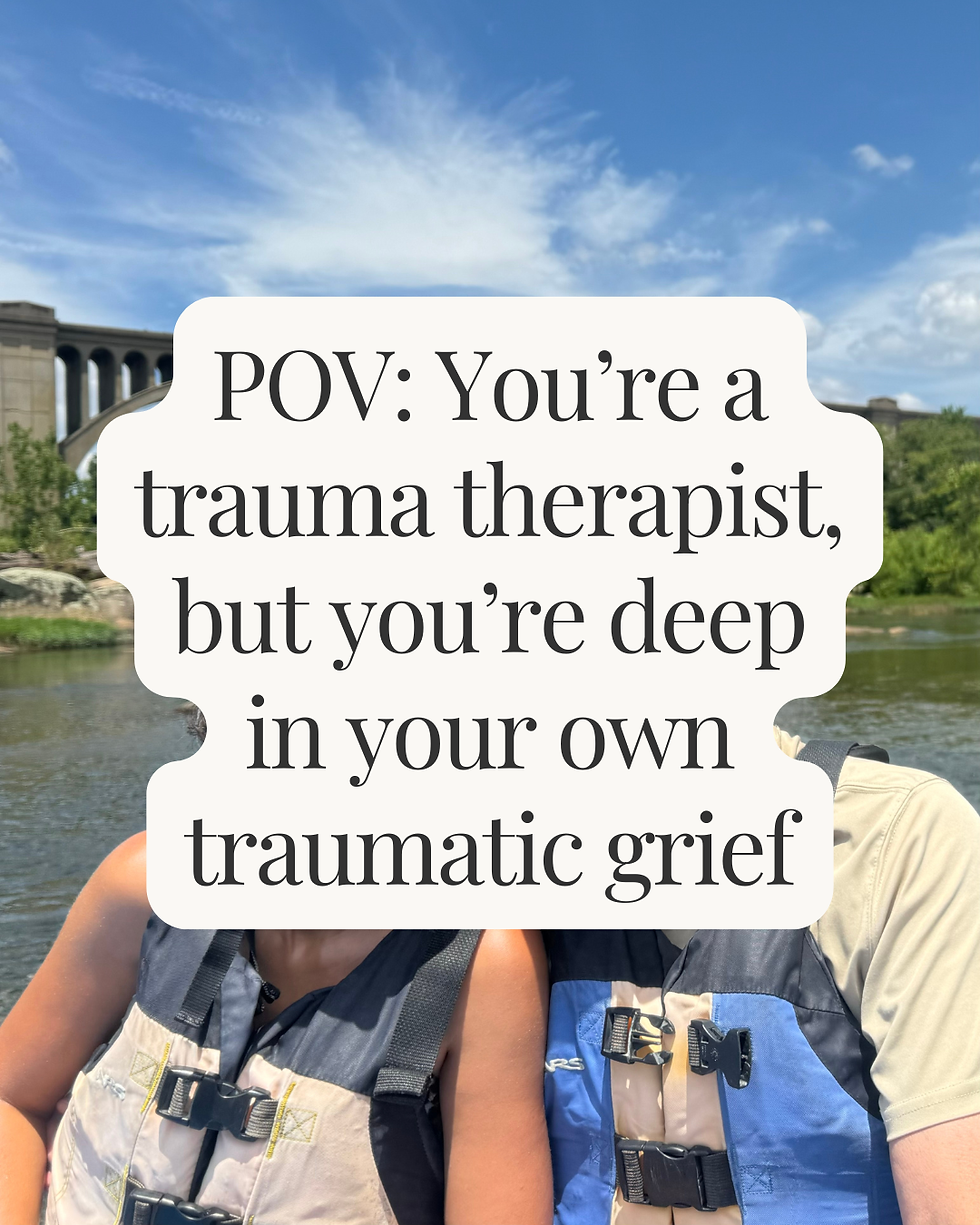Co-Regulation Starts Within: The Role of Therapist Self-Attunement in Trauma Therapy
- Adrienne Loker

- May 21, 2025
- 2 min read
By Adrienne Loker, LCSW, EMDR, SE
Attachment trauma therapy starts with the therapist’s own nervous system. It’s paramount that we’re facilitating therapy from a place of higher vagal tone in order to co-regulate into emotional safety.
Whether or not we name it, clients can feel if we’re judging them, if we feel frustrated by their symptoms, or if we are annoyed to see their names on our schedules. They can also feel when we’re zoning out, thinking about our grocery lists, or contemplating what to eat for dinner. While they may not possess the words to express this to us, they’ll feel a heightened sense of invisibility, worthlessness, or sadness. They may not be able to pinpoint the antecedent, and if the therapist is not attuned to the client, they won’t be able to either. Instead, they’ll conceptualize the symptoms as just being part of their client’s pathology.

This is one of the reasons that we operate on a 32 hour work week, as well as provide compensated cushion time between appointments. We believe that what makes therapy so impactful is the intentional conversation that happens on a biological level between therapist and client. A therapist cannot do this effectively and meaningfully when they don’t have the space to down-regulate between appointments or the attunement to their own body wisdom.
It’s not just our advanced training that makes us the best trauma therapy practice in the Richmond, VA, it’s the way our providers are able to take care of themselves so they can provide therapy from an unburdened nervous system. When therapists are taking care of themselves and not hustling with back-to-back sessions, then they have the bandwidth to notice and get curious about subtle shifts happening within their own nervous systems that are mirroring what is happening with their clients.
This biological conversation allows the client's limbic system to gently reset, creating a restorative experience of feeling felt, attuned to, and nurtured. The more these experiences are had, the more individuals can internalize them so that overtime they can autonomously meet these deeper needs for themselves.
Adrienne Loker, LCSW is an EMDRIA Certified Therapist, EMDR Consultant in Training, and Somatic Experiencing Therapist. She owns and operates a trauma-sensitive therapy practice, Seeking Depth to Recovery, that specializes in the treatment of complex and non-verbal trauma, using experiential modalities in an intensive format. In as little as one 90-minute intensive therapy session, participants report marked insight into their anxiety, panic, depression, and trauma compared to their previous experience with traditional talk therapy.
.png)



Comments